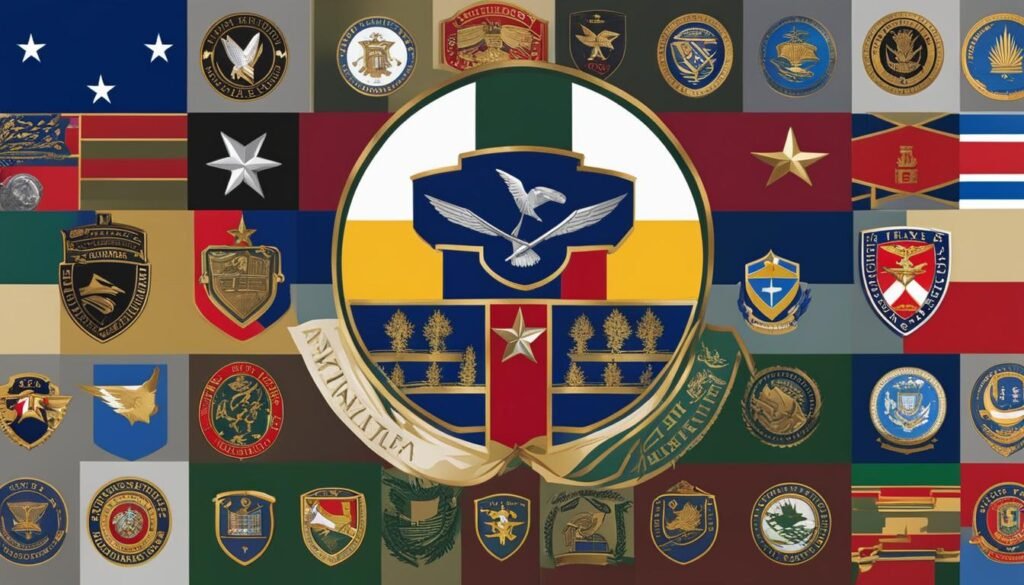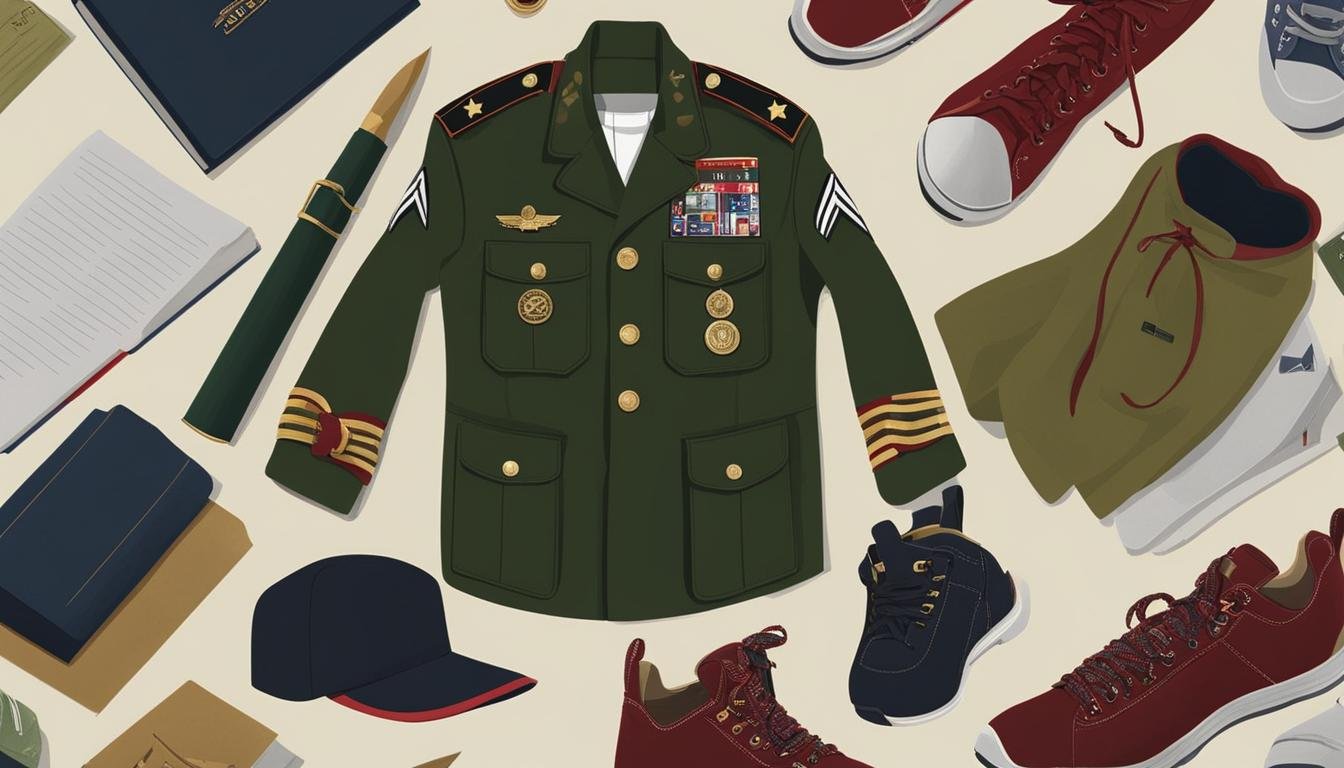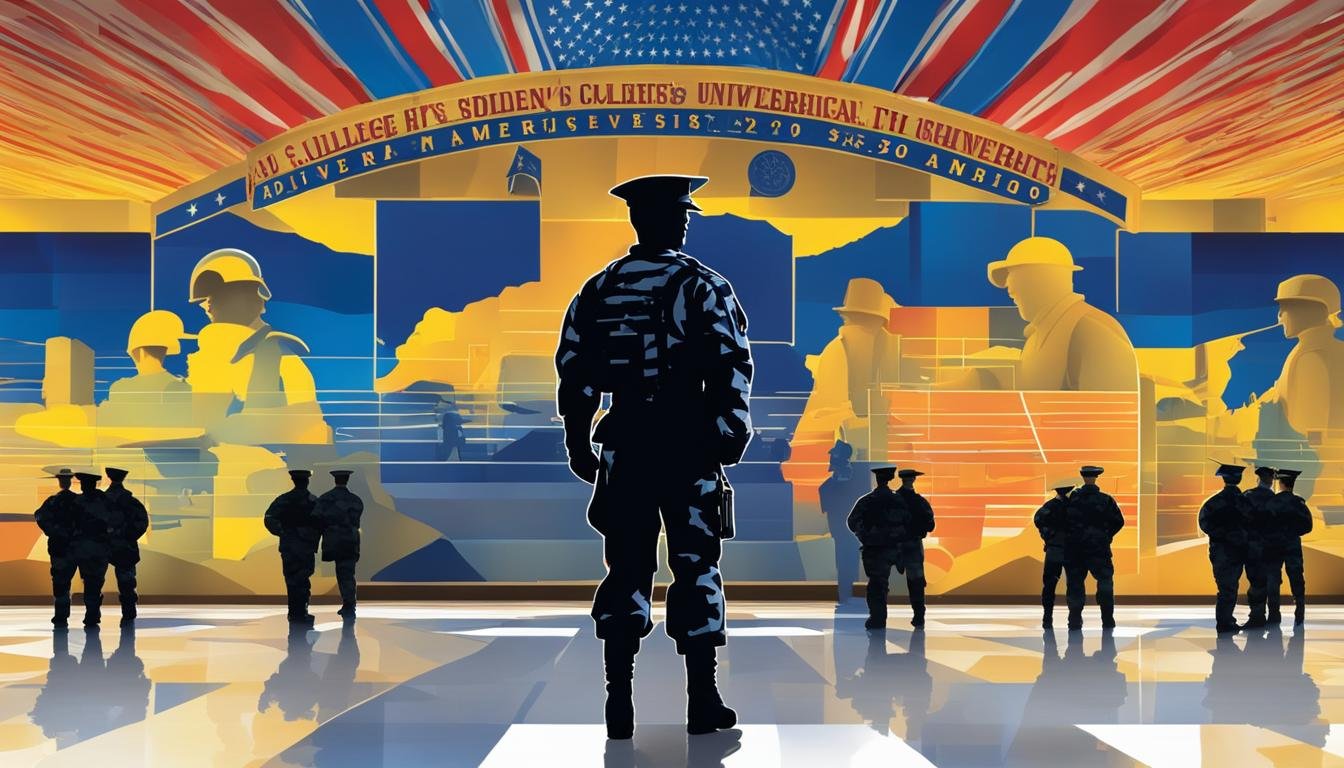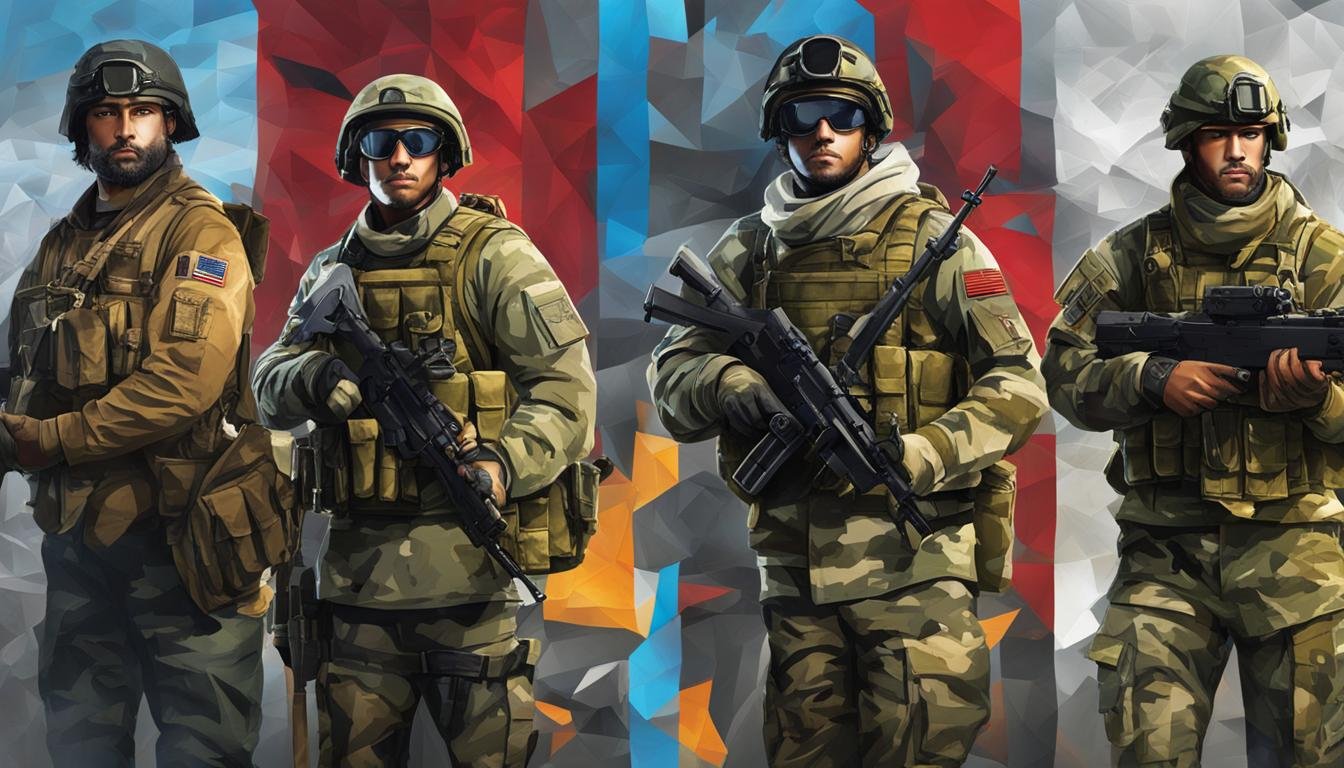How colleges recognize military training and experience and the value of military training in higher education.
Key Takeaways:
- Recognizing military training can help service members and veterans demonstrate the relevance of their experience in the civilian workforce.
- Colleges can assess the equivalency of military training and utilize credit recommendations to award academic credit.
- Military training recognition in college can lead to increased enrollment and degree completion rates for service members and veterans.
- Advocating for transparency and incentives plays a crucial role in the recognition process.
- Accreditation standards ensure consistency and quality in recognizing military training.
Benefits of Recognizing Military Training in College

Recognizing military training in college has numerous benefits. It allows service members and veterans to receive academic credit for their training and experience, speeding up their path to degree completion. Many colleges and universities recognize military transcripts as official documentation of military training and experiences. The American Council on Education (ACE) collaborates with the Department of Defense to review military training and recommend appropriate college credit.
Some examples of military training commonly recognized by colleges include:
- Leadership skills
- Technical training
- Combat experience
Case studies have shown that recognizing military training can lead to increased enrollment and degree completion rates for service members and veterans. It provides tangible validation of their skills and expertise, making them more marketable in the civilian workforce.
“Recognizing military training in college not only accelerates degree completion but also ensures that the unique skills acquired during military service are valued and acknowledged.”
Case Studies of Military Training Recognition in Colleges
In a case study conducted at XYZ University, military veterans who received credit for their military training were found to have higher retention rates and graduation rates compared to their peers. This recognition of their training gave them a sense of validation and motivated them to succeed academically. The study also revealed that employers in the local community recognized the value of military training and actively sought to hire graduates who had received credit for their military experience.
| College | Recognized Military Training | Impact on Enrollment | Impact on Degree Completion Rates |
|---|---|---|---|
| ABC University | Leadership skills, technical training | 25% increase in veteran enrollment | 15% increase in veteran degree completion |
| DEF College | Combat experience | 10% increase in veteran enrollment | 12% increase in veteran degree completion |
Types of Military Training Commonly Recognized by Colleges
Colleges commonly recognize various types of military training that translate well into academic credits. Leadership skills gained through military service are often highly regarded and can be equated to leadership courses or programs offered at colleges. Technical training, such as electronics repair or aviation maintenance, may be recognized as transferable skills in related academic programs.
Combat experience, while not directly applicable to academic coursework, demonstrates valuable attributes such as resilience, adaptability, and teamwork. These qualities are often sought after by employers and can enhance a student’s overall profile.
Challenges in Recognizing Military Training in College
Recognizing military training in college programs is crucial for supporting the academic advancement of service members and veterans. However, there are challenges that need to be addressed in order to ensure that their training and experience are properly recognized.
One of the challenges is advocating for military training recognition in college programs. Some colleges may be hesitant to award credit for military training due to concerns about the quality and transferability of the training. It is important to educate college administrators and faculty about the value of military training and its relevance to college degrees. By highlighting the skills and knowledge gained through military training, colleges can better understand the applicability of this experience to academic courses.
Another challenge is the impact of military training on academic advancement. The nature of military training can vary widely depending on the specific program and institution. Some military training programs are highly specialized and may not have a direct equivalent in traditional academic settings. It is important to take into account the unique aspects of military training and find ways to assess its value in relation to academic advancement. This may involve developing specific criteria or guidelines for evaluating military training and translating it into college credit.
The Importance of Advocacy and Quality Assurance
Advocacy plays a crucial role in addressing these challenges and ensuring that military training is recognized in college programs. By working with colleges, government agencies, and advocacy organizations, we can promote policies and practices that support the recognition of military training. This includes advocating for clear equivalencies between military skill sets and their academic equivalents, as well as providing transparency and incentives for colleges to recognize military training.
Quality assurance is also important in the recognition process. Accreditation standards can help ensure that the recognition of military training is consistent and of high quality. By establishing guidelines and criteria for recognizing military training, colleges can ensure that service members and veterans receive the credit they deserve for their training and experience.
| Challenges in Recognizing Military Training in College |
|---|
| Advocating for military training recognition |
| The impact of military training on academic advancement |
| Ensuring quality assurance through accreditation standards |
Advocating for Military Training Recognition in College Programs

Advocating for military training recognition in college programs is crucial to ensuring that service members and veterans receive the credit they deserve for their training and experience. One approach is to establish clear equivalencies between military skill sets and their academic equivalents. By clearly outlining how military training aligns with college courses, it helps college administrators and faculty understand the transferability of military training to academic programs.
Transparency and incentives also play a key role in recognizing military training. It is important to provide clear information about the linkages between military training and specific civilian jobs. This can help all stakeholders understand the value of military education, training, and experience, and see how it directly relates to their chosen field of study.
By ensuring transparency and providing incentives for colleges and universities to recognize military training, we can bridge the gap between military experience and civilian employment.
Incentives, such as strong motivations for colleges and employers to recognize military training, can further encourage the recognition process. These incentives can include partnerships with military organizations, financial benefits for recognizing military training, and enhanced recruiting opportunities for colleges that demonstrate a commitment to supporting service members and veterans.
Military Skill Sets and Their Academic Equivalents
To help colleges understand the value of military training, it is essential to establish clear equivalencies between military skill sets and their academic equivalents. For example:
| Military Skill Set | Academic Equivalent |
|---|---|
| Leadership in high-pressure situations | Management and decision-making skills |
| Technical training in advanced electronics | Electrical engineering coursework |
| Combat experience and tactical training | Strategic thinking and crisis management |
By highlighting these equivalencies, colleges can better understand the depth and breadth of military training, and recognize how it aligns with their academic programs. This can lead to more colleges actively seeking ways to recognize and award credit for military training, benefiting both service members and veterans seeking higher education.
Conclusion
Recognizing military training in college is crucial for supporting the academic advancement of service members and veterans. By implementing accreditation standards for military training recognition, colleges can ensure a consistent and high-quality recognition process. This recognition is vital in highlighting the relevance of military training to college degrees.
By assessing the equivalency of military training and utilizing ACE credit recommendations, colleges can bridge the gap between military experience and civilian employment. This recognition not only speeds up the path to degree completion for service members and veterans but also enhances their opportunities in the civilian workforce.
It is important to advocate for transparency and incentives in recognizing military training. Clear information about the linkages between military training and specific civilian jobs can help all stakeholders understand the value of military education, training, and experience. Incentives, such as motivations for colleges and employers to recognize military training, further encourage the recognition process.
FAQ
How do colleges recognize military training and experience?
Colleges often recognize military training and experience by reviewing military transcripts and awarding academic credit based on the equivalency of the training to college courses.
What are the benefits of recognizing military training in college?
Recognizing military training allows service members and veterans to receive academic credit, speeding up their path to degree completion. It also increases enrollment and degree completion rates for service members and veterans.
What types of military training are commonly recognized by colleges?
Colleges commonly recognize leadership skills, technical training, and combat experience as examples of military training that can be translated into academic credit.
What are the challenges in recognizing military training in college?
One challenge is advocating for military training recognition in college programs, as some institutions may be hesitant due to concerns about the quality and transferability of the training. The impact of military training on academic advancement can also vary depending on the specific program and institution.
How can colleges advocate for military training recognition?
Colleges can advocate for military training recognition by establishing clear equivalencies between military skill sets and their academic equivalents, educating administrators and faculty about the value of military training, and implementing transparency and incentives in the recognition process.
What is the importance of transparency and incentives in recognizing military training?
Providing clear information about the linkages between military training and specific civilian jobs helps stakeholders understand the value of military education, training, and experience. Incentives, such as motivations for colleges and employers to recognize military training, further encourage the recognition process.
What are the accreditation standards for military training recognition?
Accreditation standards ensure that the recognition process is consistent and of high quality. They help bridge the gap between military experience and civilian employment, enhancing service members’ and veterans’ opportunities in the civilian workforce.
How is military training relevant to college degrees?
Recognizing the value of military training and its relevance to college degrees can lead to increased enrollment and degree completion rates for service members and veterans. It also supports their academic advancement and overall success in transitioning to civilian life.



